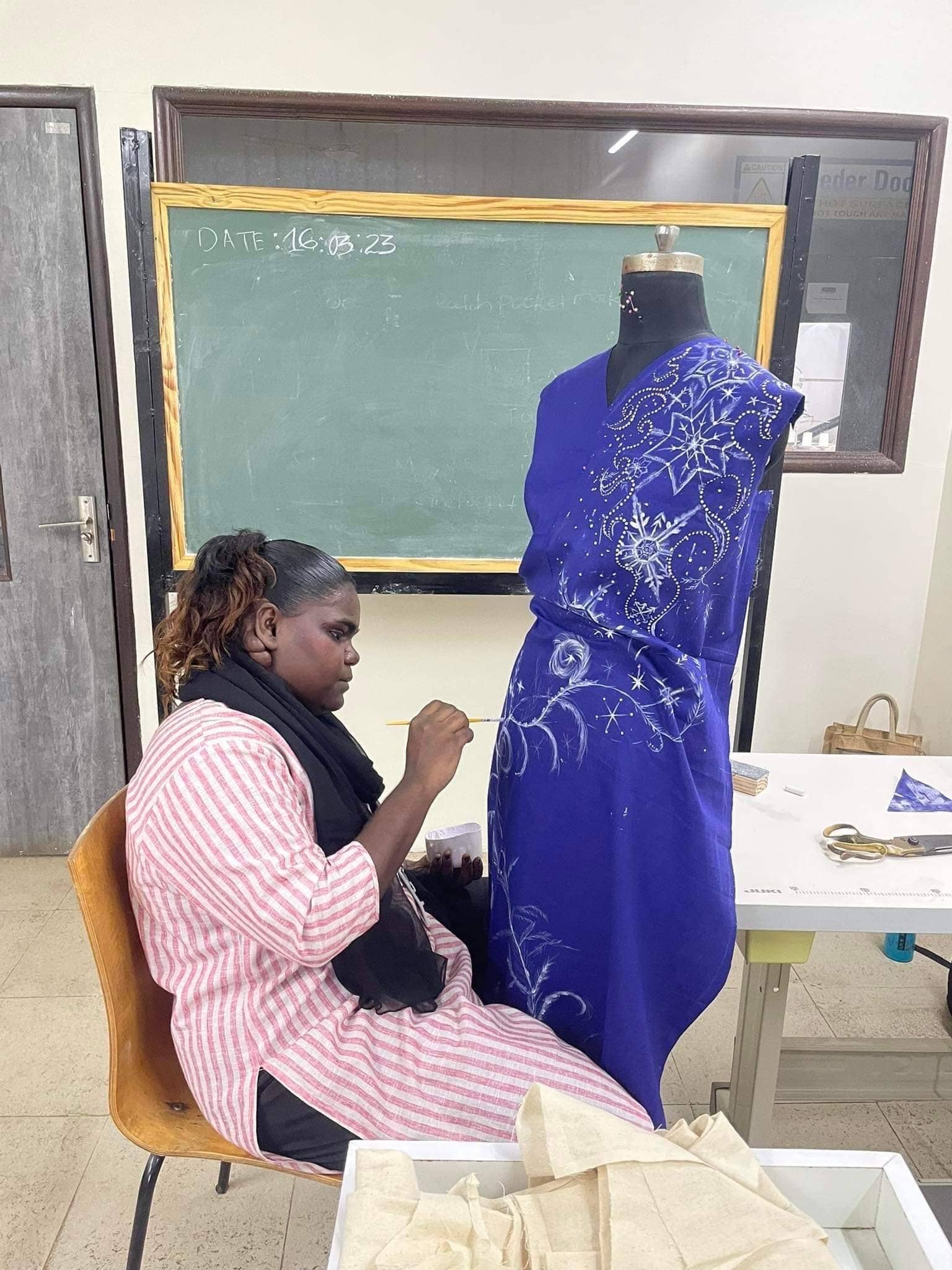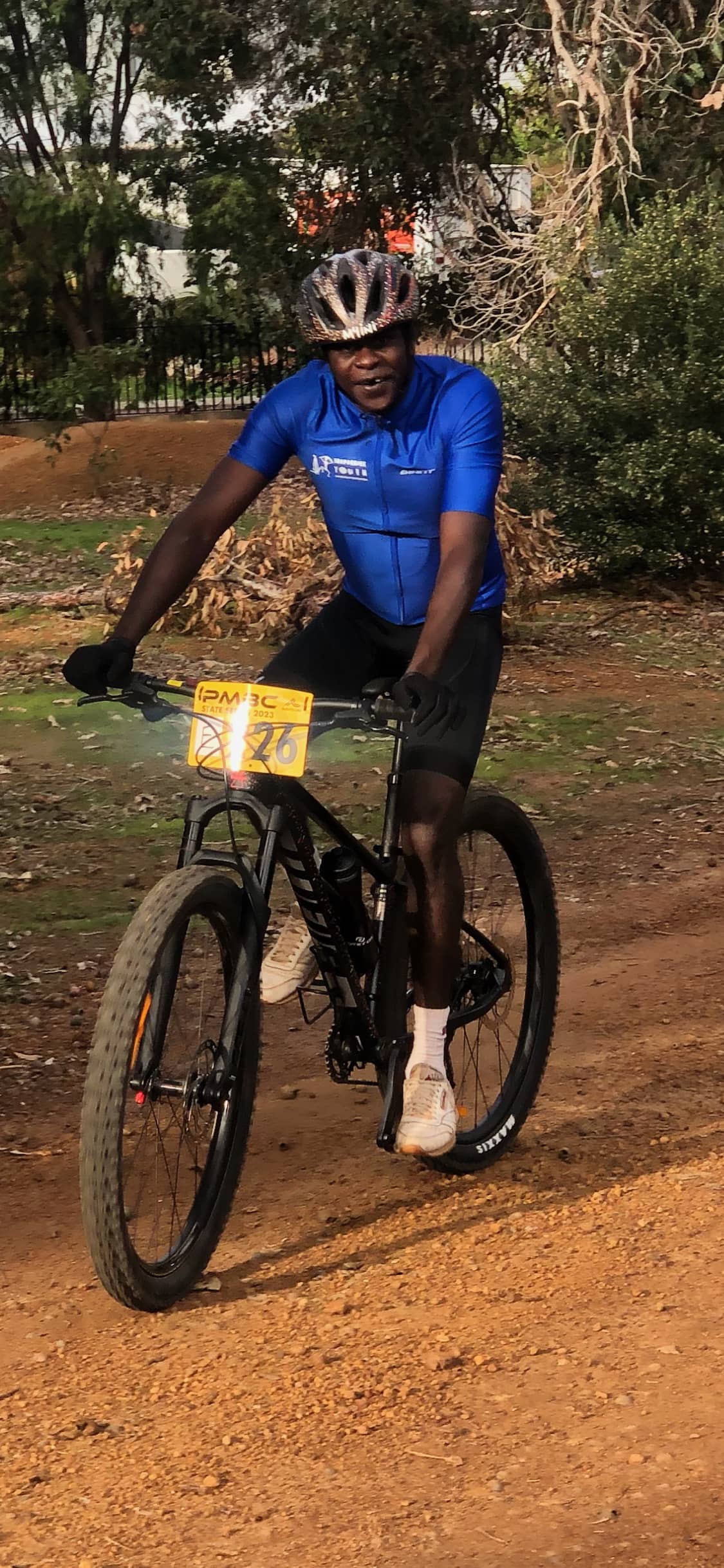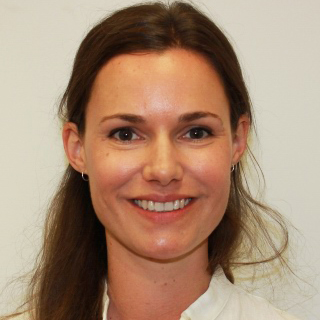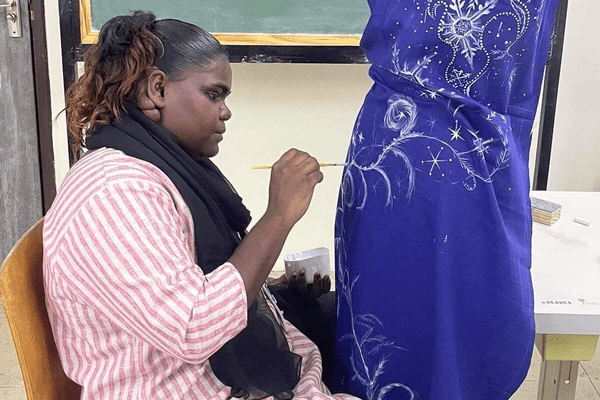On the south-west outskirts of the Northern Territory sits the town of Wadeye. Located 420 kms from Darwin, it’s one of Australia's largest remote Indigenous communities and home to 22 different clan groups from across the Thamurrurr region.
The remoteness of Wadeye poses challenges for locals, like many Aboriginal communities in Australia. Pathways to employment are scarce and limited transport hinders local travel, but it hasn’t stopped the community from seeking out opportunities to change things for themselves.
Justin and Rebecca Crawley from Thamarrurr Youth Indigenous Corporation spoke to us about two recent local initiatives.
Education in India
One of the challenges in Wadeye is pathways to further education. School attendance is low, which means younger community members often look for other training opportunities.
Bec explains how the community has recently connected with a university in India called Centurion University, a not-for-profit skills-based university that was set up for tribal Indians and offers student residencies.
“We have our first cohort of six women there now doing textiles and apparel,” says Bec.
“They are about to complete their six months and have been making dresses, shorts, bags and learning the whole process from start to finish as opposed to a short course.”
The goal is the women will take their newly acquired skills back to Australia. One participant plans to start a side business making t-shirts while she studies at university while another hopes to create an earring business in Victoria while she works a full-time job.

"I loved my time in India making unforgettable connections and had such an eye-opening experience. It was amazing." - Amaya Chula
The next step is to make sure they have support once they return home to Wadeye.
“We are setting up a space for them to work from and they will get support from Black Duck Group” says Justin.
Black Duck Group helps strengthen ties between Indigenous and non-Indigenous businesses. They will help the Wadeye women create business models that suit their families, lifestyles, and communities.
So why India?
Centurion University have a unique model driven by Professor Mukti Mishra who is dedicated to supporting Wadeye to create solid outcomes for local people.
“We are sending these women to India for a tenth of the cost of what it would cost to run anything like this in Wadeye” says Justin.
“It’s been huge for their confidence, their independence, and their general health. They are eating good healthy food and their energy levels are higher. They are starting to realise the challenge they have overcome to go away for that length of time and be away from home in a new culture.”
Local mountain bike riding
The second initiative happening in Wadeye is mountain bike riding.
Thamurrurr Development Corporation (TDC) bought 70 mountain bikes for the community and run mountain bike sessions for school kids and young people. To say the bikes have been a hit is an understatement.
Justin claims the bikes are so popular that at one-point locals thought the youth corporation was running evening programs due to the number of kids on bikes at night.
“Kids steal mountain bikes because they like riding. We always get them back, people drop them off, we’re even getting bikes back that weren’t ours” he laughs.
With the help of a young guy from Victoria, Lachlan Forbes, who has spent time in the community and competed in overseas mountain bike riding, a few of the local guys are training to compete in mountain bike events in Margaret River and Dunbrough.
Justin says the goal isn’t to create professional mountain bike riders but to generate an interest in mountain bike riding so people can move about the community with ease.
“It’s like football, if you want a lot of people to play football you have to create high profile footballers, so that all the young kids do it because they want to be like them,” says Justin.
“It’s the same mentally with mountain biking.”

"The mountain bike rice was hard work and a bit scary, but we loved it and want to do another one." - Alex Lantjin
There’s no bike shop in Wadeye, so locals learnt how to fix and repair the bikes themselves.
Justin explains that having locals who can fix and ride the bikes means they’ve become role models to the younger ones.
“They are teaching them [the younger ones] in language, as opposed to working with a non-indigenous teacher or service provider… The difference is chalk and cheese,” Justin says.
“We know they love mountain bikes; we just have to find a way to get them interested in using them for a different purpose, like to go fishing, hunting, do exercise, and access homelands.”
The youth centre has built mountain bike tracks through the bush and hopes the kids will use the bikes beyond town.
The benefits to the community of both initiatives goes beyond the practical and economical.
“To see members of the community as role models and successful role models in their own right, has massive benefits for the community” says Justin.
Justin and Bec acknowledge things aren’t going to happen overnight, but they can see the interest and energy with these initiatives.
“It’s slow and steady, we learn as we go, and make mistakes as we go,” says Justin.
“It’s about finding doors they can open and opportunities they believe they can achieve.”
These initiatives are just the beginning for the Wadeye community. With new-found motivation and momentum behind them, there is already talk of some of the women training for upcoming mountain bike events and the men heading to India to study. Despite being up against the challenges of remote living, the community is out to create long-lasting positive change for itself.
Medibank has a growing relationship with Wadeye and Thamarrurr Youth Indigenous Corporation and is proud to share the brilliant stories and initiatives coming from the community.

